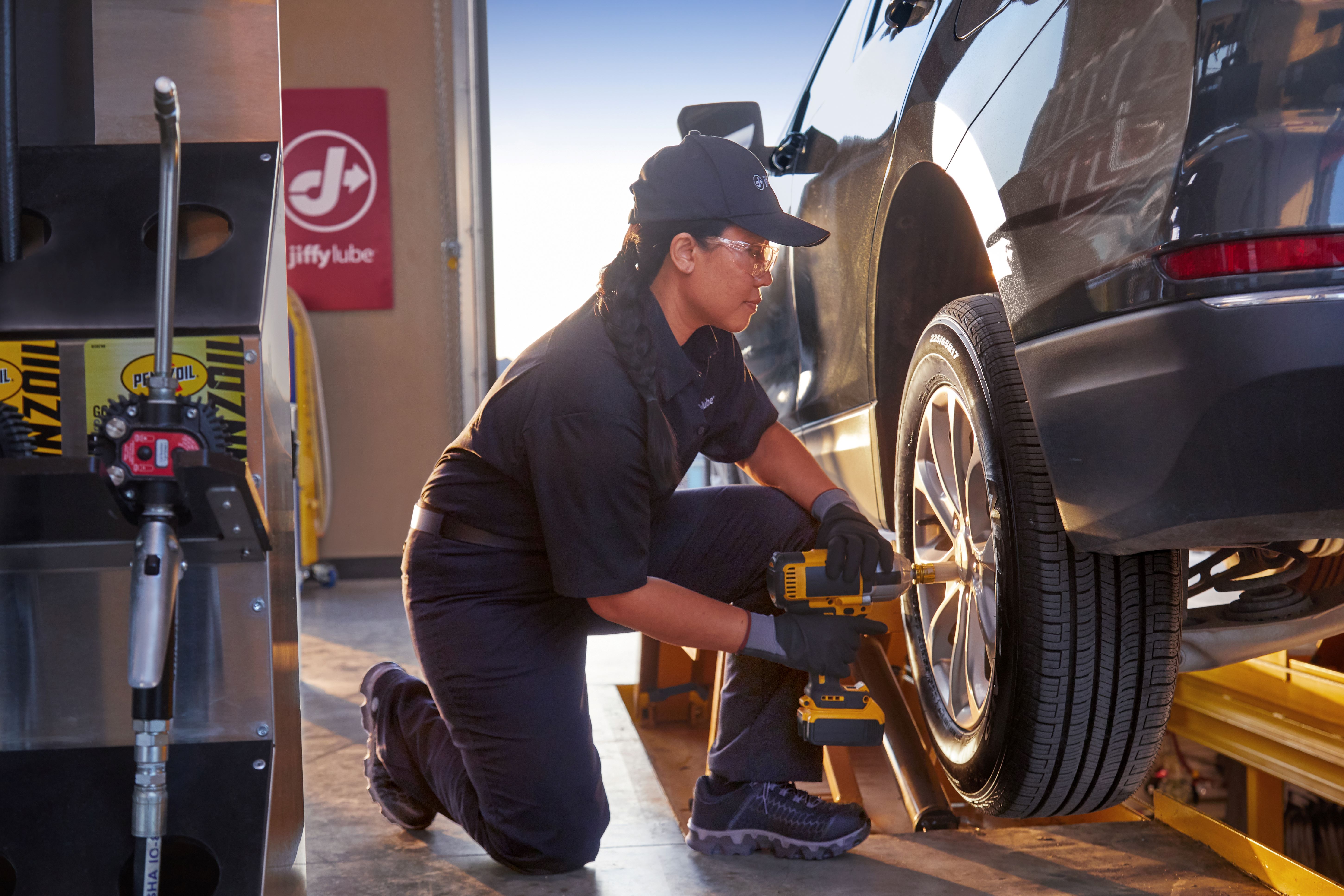Find the most effective Tires Morris IL: Extensive Option Offered
Tire Solution: Comprehending Tire Pressure Surveillance Systems
Understanding Tire Stress Tracking Equipments (TPMS) is an essential element of preserving optimum automobile efficiency and safety and security on the road. With developments in vehicle innovation, TPMS has actually come to be a basic attribute in modern automobiles, giving real-time information on tire pressure degrees.

Value of TPMS
The value of Tire Stress Monitoring Equipments (TPMS) hinges on their capability to improve vehicle safety and performance through real-time surveillance of tire pressure degrees. Preserving the proper tire stress is essential for making certain optimum handling, stopping, and total safety of a lorry. TPMS supplies drivers with prompt responses on any underinflated or overinflated tires, allowing for timely adjustments to be made.
Parts of TPMS
Sensors are generally situated in the tire valve stem or attached to the wheel assembly, where they gauge tire stress and transfer data to the control module. Some progressed TPMS models also show the real tire stress readings for each tire, providing chauffeurs with real-time information to guarantee optimal tire efficiency and security. By checking tire pressure continually, TPMS helps prevent mishaps, minimizes tire wear, and enhances fuel effectiveness, making it an essential element for car security and efficiency. tires morris il.
Types of TPMS

On the various other hand, indirect TPMS depends on the automobile's wheel rate sensors to keep track of tire pressure. This system detects underinflation by contrasting the rotational speeds of the wheels. Indirect TPMS is less expensive than direct TPMS, as it uses existing sensors within the lorry.
While direct TPMS uses extra precise readings, indirect TPMS is simpler in design and usually needs less maintenance. Both systems have their limitations and benefits, and the option in between them frequently relies on elements such as expense, lorry make, and personal preference. Comprehending the distinctions in between these two sorts of TPMS can aid car owners make educated choices concerning tire upkeep and safety.
TPMS Upkeep Tips
Efficient upkeep of TPMS is crucial for guaranteeing optimal efficiency and security of your automobile. Regularly checking the TPMS sensing units for any kind of damages or deterioration is vital. Make certain that the sensing units are clean and totally free from particles that can disrupt their functioning. Additionally, it is a good idea to examine the sensor batteries regularly and change them as needed to guarantee accurate readings. Conduct routine checks on the tire pressure degrees and contrast them with the TPMS readings to guarantee they correspond. Alter the system following the producer's standards if there are any kind of discrepancies. Moreover, during tire turning or substitute, ensure that the TPMS components are managed thoroughly to avoid any type of prospective damage. Lastly, if the TPMS advising light brightens on the control panel, deal with the concern without delay by examining the tire pressures and the total system for any kind of faults. By sticking to these maintenance suggestions, you can lengthen the life expectancy of your TPMS and enhance the safety and security of your driving experience.
Benefits of Appropriate Tire Pressure
Maintaining appropriate tire pressure, as highlighted in TPMS Upkeep Tips, is critical for reaping the countless benefits linked with optimum tire pressure levels. Among the key advantages of keeping the right tire stress is improved gas efficiency. When tires are correctly blown up, there is less rolling resistance, bring about much better fuel economic situation. Furthermore, proper tire stress makes certain even tire wear, expanding the lifespan of the tires and promoting much safer driving problems. With the best tire stress, cars additionally have better handling and grip, particularly in negative weather. This can improve total driving performance and security for the driver and guests. Maintaining optimum tire pressure can add to a smoother and much more comfy ride by decreasing resonances and sound triggered by underinflated tires. In final thought, the advantages of proper tire stress go beyond simply tire longevity; they include boosted gas performance, enhanced security, much better vehicle performance, and general driving convenience.
Conclusion
Finally, understanding tire pressure surveillance systems (TPMS) is crucial for maintaining optimal tires morris il tire pressure and guaranteeing car security. By recognizing the importance of TPMS, being acquainted with its parts, knowing the various types readily available, adhering to correct upkeep suggestions, and understanding the advantages of maintaining appropriate tire stress, chauffeurs can enhance their driving experience and extend the life-span of their tires. Appropriate tire pressure is vital to efficient and risk-free automobile operation.
